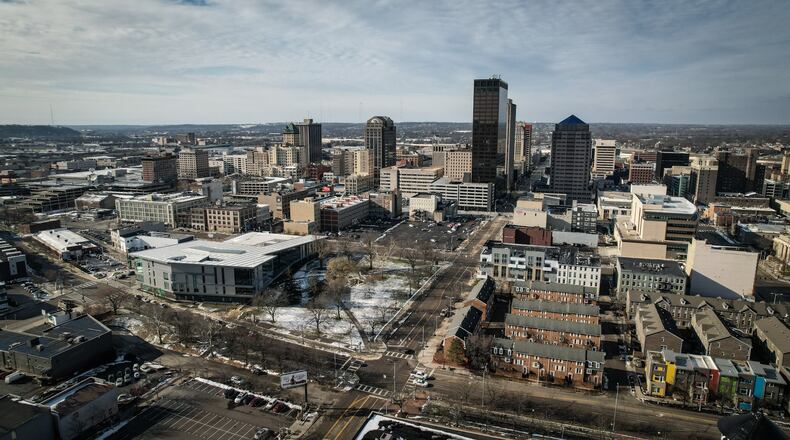“We far exceeded our expectations here but we’re bracing ourselves from the work-from-home situation and how that has the potential to erase these seismic gains,” said Diane Shannon, Dayton’s director of procurement, budget and management.
Dayton collected $145.8 million in income taxes in 2021, which was up $12 million (+9%) from the prior year and far exceeded expectations.
Dayton’s original 2021 general fund budget predicted revenues would decline by nearly $6 million and the city would have to use $13.1 million from its cash reserves.
Instead, collections exceeded the original projection by $18 million, and the city didn’t dip into its savings at all.
Stellar income tax growth and the strong performance of general fund revenue allowed the city to increase investments in the latter part of 2021, Shannon said.
She said this included addressing priorities like police reform, community engagement, recreational programming and reinstating public safety recruit classes.
“Specifically, investments in the original budget totaled $10.2 million; however, we were able to increase that amount in the final budget with actual investments totaling $35.5 million,” she said.
Money was transferred from the general fund to capital and development funds.
The city set aside millions of dollars for “catalytic investments,” replacing fire department equipment and other capital improvements and equipment purchases and enterprise plans.
But the city predicts earnings tax revenue is going to nosedive this year.
Dayton projects that the city will take in about $135.9 million from its 2.5% earnings tax — a nearly 7% decline from 2021.
The shift to remote working since the start of the COVID outbreak is to blame, Shannon said, who estimates that the city will lose about $13 million due to this change.
About eight in 10 people who work in Dayton live in other communities, and the city predicts many workers who used to work in the city will continue to work from home.
The city this year plans to use about $10 million of its $138 million in federal rescue funds for revenue replacement.
Dayton is expected to use some of its federal rescue funds — from the American Recue Plan Act (ARPA) — to plug revenue holes for the next few years.
Dayton faces a fiscal cliff when the ARPA funds run out a few years from now, and the city could see significant deficits unless something changes, said Dayton City Commissioner Matt Joseph.
The city will continue to make adjustments given the looming financial threat, Joseph said, but there’s only so much it could do without making deep and painful cuts that would negatively impact services residents depend on.
Joseph said he hopes the state legislature will help figure out solutions to ensure Ohio’s cities aren’t devastated by income losses from work-from-home changes.
Joseph said the city has to take a cautious budget approach, considering the scale of possible revenue losses.
“It’s prudent to plan for the worst because if we don’t, then there are a lot of terrible outcomes that could happen,” he said.
About the Author

